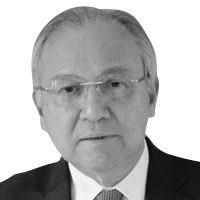Maraming salamat, Vietnam!

One of my ASEAN colleagues who made an extra effort to attend our Philippine Independence Day diplomatic reception held at the Kennedy Center (see photos in This Week on PeopleAsia at the Allure section of the Philippine STAR today) was Vietnamese Ambassador to Washington Ha Kim Ngoc, who stayed long enough to greet me and listen to my speech. He had to leave shortly because his foreign minister was due to arrive in Washington.
I expressed our country’s sincere gratitude to Ambassador Ngoc for what his countrymen did – rescuing 22 Filipino fishermen whose boat was rammed from behind by a Chinese vessel near Recto Bank well within our economic zone in the West Philippine Sea.
Ambassador Ngoc responded by firmly telling me: “We are brothers – ASEAN brothers. We should help each other.” In fact, the charismatic Vietnamese ambassador is literally my neighbor. The Vietnam ambassador’s residence is located right beside the Philippine ambassador’s residence on R street at Sheridan Circle in Washington, D.C.
All of us including many Filipino-Americans believe that had it not been for the rescue of the poor Filipino fishermen by the Vietnamese – they all could have drowned after having been too exhausted trying to stay afloat.
According to the account by the Vietnamese boat captain, they spotted two of the shivering fishermen, who were wearing life jackets and clinging to plastic barrels, frantically waving to attract attention. And despite the language barrier, three words stood out that convinced the Vietnamese boat captain that the men were not pirates but persons in distress: “Vietnam. Philippines. Friends.”
Perhaps many young people may not be aware today, but this friendship between Filipinos and the Vietnamese goes back a long way, and was very evident when the Philippines welcomed refugees from Vietnam (also known as the “boat people”) beginning in the ’70s, with many of them settling in Puerto Princesa in Palawan, even establishing a village known as Viet Ville later on. During the Vietnam War, the Philippines sent an engineering battalion led by General Gaudencio Tobias instead of combatants.
No doubt the experiences of Vietnam during several wars have made the people tenacious, showing courage in the face of great odds and standing up against countries that are superior in terms of military and economic power, seen during the Vietnam War involving the US, the border and naval clashes between China and Vietnam (the Sino-Vietnamese conflicts), and the 1988 skirmish at Johnson South Reef that resulted in the death of 64 Vietnamese soldiers who were defending the disputed territory and trying to prevent the Chinese from taking their flag.
While relations between Vietnam and China have since normalized, the territorial disputes continue to be a sore point with many countries claiming that Chinese vessels conduct illegal fishing in contested territorial waters. Many Vietnamese including intellectuals also continue to commemorate the Johnson Reef Clash, saying this is proof of the Vietnamese people’s heroism in fighting “foreign invasion.”
In fact, a Vietnamese official had warned Philippine and US diplomats to “be wary about China,” because its aggressive actions especially in the disputed maritime territories in the Spratlys do not match its pronouncements that “China does not seek hegemony, expansion or sphere of influence.” Sadly too, some people from the US State Department privately admitted that it was a mistake to trust China’s intentions when the Chinese promised Obama that they will not militarize disputed areas. In fact, we trusted the United States during that period when both China and the Philippines were occupying the Scarborough shoal. We were advised by the US to leave the area and that they will make sure the Chinese would leave it, too. We did; the Chinese didn’t.
Today, the irony of it all is that the Vietnamese seem to be inching closer to the US instead of their Asian neighbor as shown in developments in recent years. According to a 2017 survey by the Pew Research Center, only 10 percent of Vietnamese held a positive view of China, in contrast with the 84 percent (second only to the 85 percent by Americans) who hold the US in a positive light.
A few months ago, the Vietnamese Coast Guard received six Metal Shark patrol boats from the US – signaling a mutual desire for closer cooperation between the erstwhile enemies.
When Vietnam hosted the second meeting between President Trump and North Korean leader Kim Jong-un last February – dubbed as the Hanoi Summit – it showed the growing role Vietnam is playing in the Asia Pacific region. As US Assistant Defense Secretary Randall Schriver noted, the defense relationship with Vietnam “represents one of the strongest pillars in [America’s] multifaceted bilateral relationship,” based on a foundation of common and shared interests.
In fact, preparations are already underway for President Nguyen Phu Trong’s visit to the US following the invitation issued by President Trump during the Hanoi Summit, where several trade deals between the two countries were also signed. President Trump praised Vietnam’s economic performance which he described as one of the fastest growing on earth.
“It is in America’s interests to have partners throughout this region that are thriving, prosperous, and dependent on no one. We want strong partners, not weak neighbors. And above all, we seek friendship,” Trump said.
We should be grateful we have Vietnam for a friend – their humanitarian action saved the lives of 22 Filipinos who were just “trying to make a living.” A Filipino commented, “I feel sad for our Filipino fishermen. Their lives are already in peril having to go out into the high seas… now, they have to worry about being rammed and killed.”
* * *
Email: babeseyeview@gmail.com
- Latest
- Trending
























